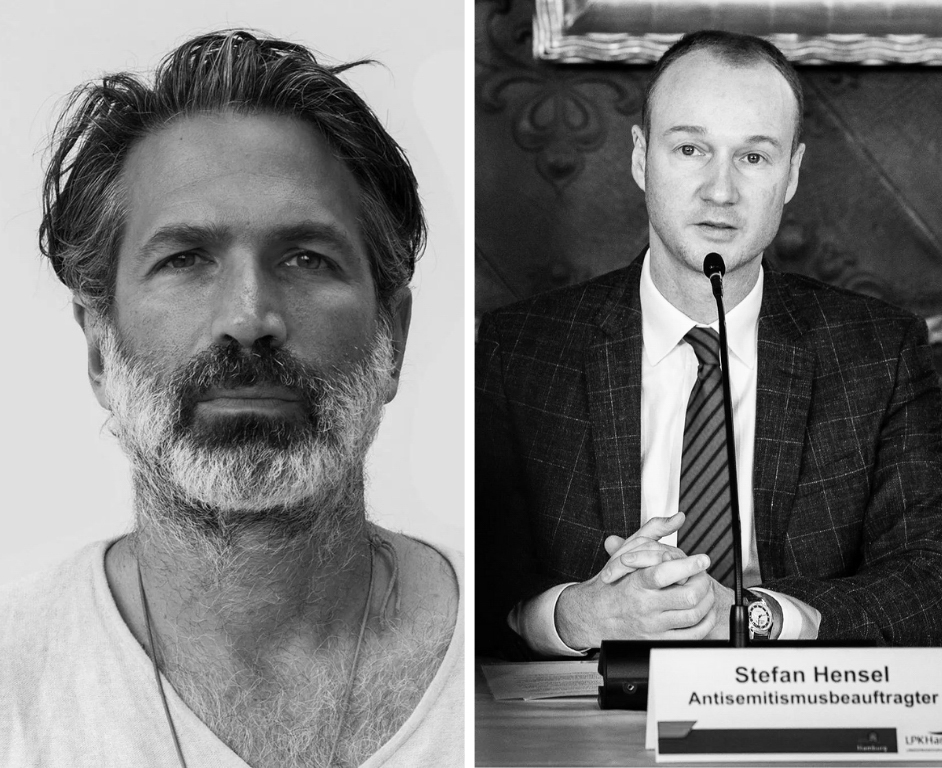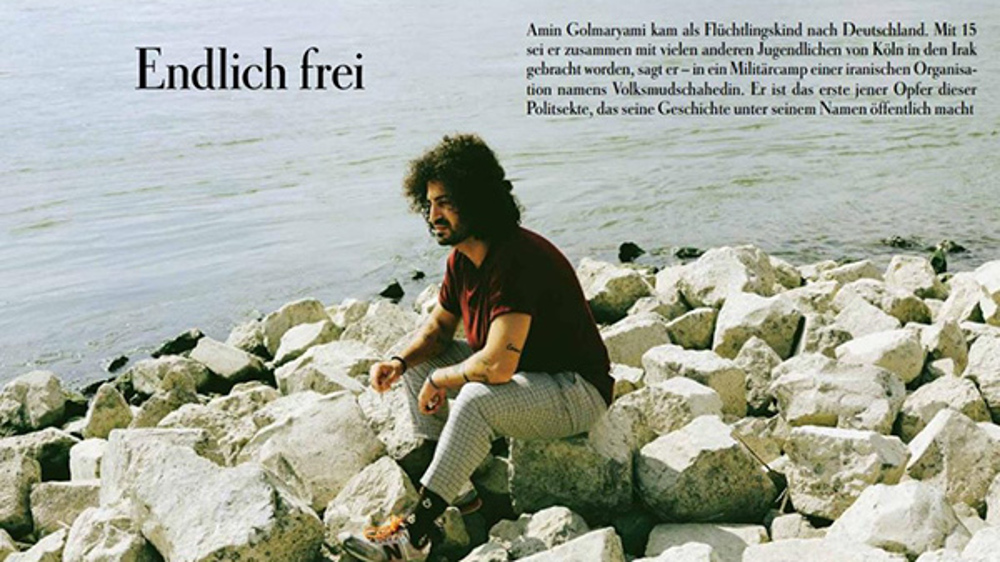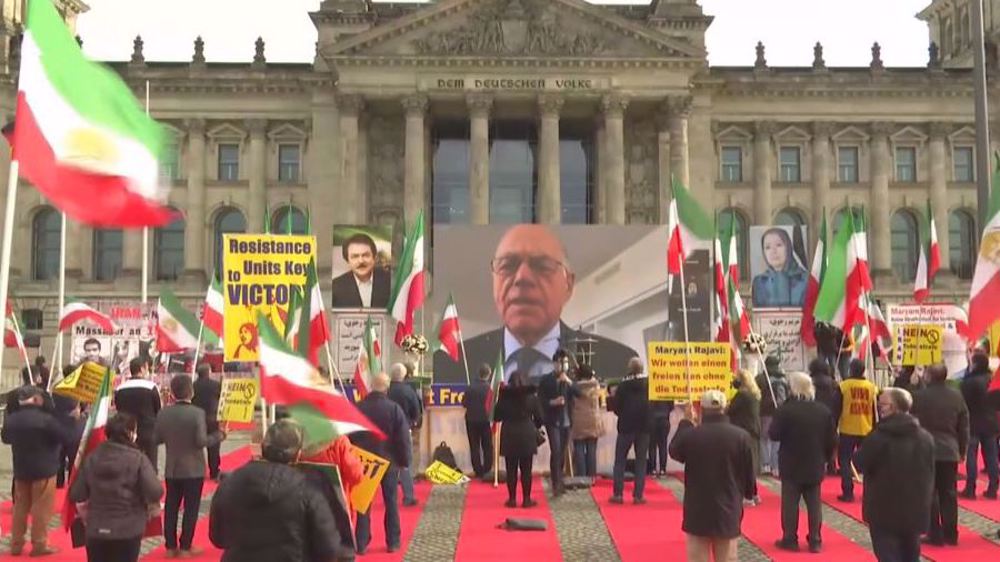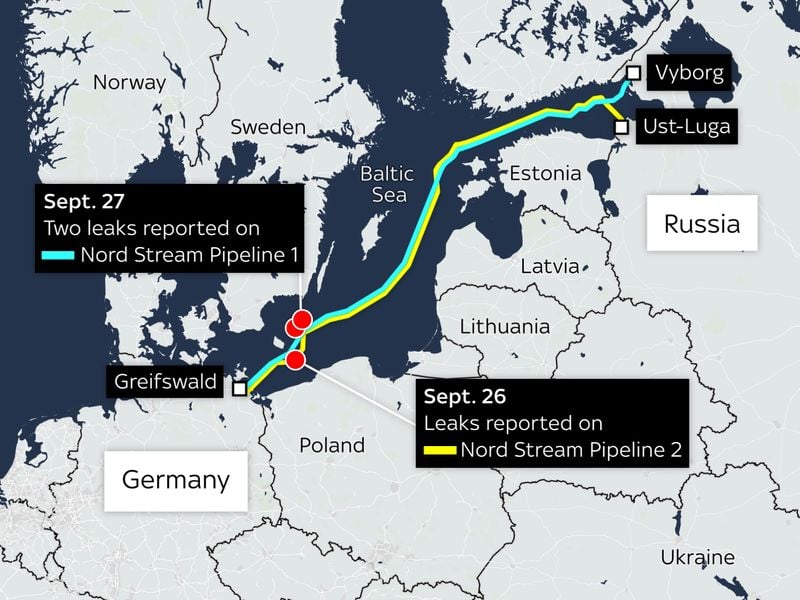By Hussein Assaf
Europe must accept the fact that the world today is no longer the Western playground and that the growing anti-hegemonic sentiment among nations is irreversible.

It’s important to emphasize that Europe was not a victim in the current world order run by Washington, but rather a participant. Its contributions were destructive, filled with colonialism, theft, dismantling, and murder of nations that directly led to corruption, poverty, and injustice worldwide.
Europe’s bloody history
Despite Europe joining the global financial systems established by the US in the 20th century, such as the IMF and World Bank, the continent has used these tools to deepen its colonialism and expansion policies towards countries worldwide. It has even leveraged its position with bodies like the UN and UNSC to exploit weaker states and enforce its hegemonic agendas, including wealth looting and proxy wars against rivals politically and economically.
However, the rise of the Global South in recent years has allowed its nations to counter the hegemonic exploitation of international bodies by funneling their resources into their economies to advance in the new world order. By engaging with the Western coalition while shielding themselves from their malicious agendas, these nations can benefit in the long run.
Post-WW2 world order
After World War II, the United States emerged as an unrivaled superpower, untouched by the catastrophic destruction of the war and claiming a barely earned victory. Between 1944 and 1949, milestone events secured the unipolar order under the US and placed the EU under Washington’s direct influence for decades to come.
Bretton Woods in 1944 established the USD as the global reserve and trade currency, while the Marshall Plan in 1945 provided funding to Western European countries that agreed to follow America’s dictates to rehabilitate and rebuild their infrastructure and industrial capabilities (note that the plan’s funds were used to purchase American goods).
The establishment of the IMF and World Bank enforced the new world monetary and financial system crafted by Washington. The Truman Doctrine finally ensured that Western Europe became a follower of Washington’s foreign policies.
Establishing NATO, a war coalition under Washington’s direct control, was the highlight of that period. It served the interests of the United States and ensured that Europe did not attempt to create a sovereign military power but rather relied on the US for protection.
The final blows to Europe’s industrial complex in the 20th century were the Nixon Shock in 1971, where the bloc’s member states found themselves stuck with paper notes whose value was solely determined by Washington, and in 1974 when the United States and Saudi Arabia agreed to peg oil to the USD – establishing the petrodollar. This meant that Europe’s access to the world’s largest energy reserve was now controlled by Washington.
The petrodollar required Europe to maintain an abundance of USD reserves for oil purchases, resulting in increased investment in American treasury bonds and currency inflow to US markets. Despite partnering with the US in its bloody crusades over the past decades, the EU’s interests were not taken into consideration by Washington.
The US has used its European allies as tools in the invasion of Afghanistan and Iraq, the destruction of Libya and Syria, and relations with the Arab world (the world’s richest energy region). Although Europe faced similar political and public backlash, it was the US that acquired the real strategic interests.
Disregarding the changed world we live in, the EU continues to live under a WW2 mentality.
Despite warnings against militarily provoking Russia, the EU doubled down on the American-NATO illusion that being the strongest military coalition worldwide guarantees inevitable victory, and using force to impose the West’s worldview remains a viable option.
Self-destructive tendencies
After years of Russia sending signals and after many world vocal warnings, including from prominent Western figures like Kissinger, regarding NATO’s eastward expansion, European member states made the same mistake and adopted Washington’s doctrine on Moscow, leading to a conflict with Russia. Despite the historic failure of this approach, EU leaders repeatedly attempted to humiliate Russia and publicly claimed that the West aimed to bring Moscow to its knees since the beginning of the war in Ukraine until recently.
The conflict with Russia has deeper repercussions on the EU than just preventing mutually beneficial trade ties that would put both economies on a trajectory of development and growth. The United States aims to fight against the growing Global South, with China at the top, and to cut off any attempts by its European allies to further integrate with Asia’s rising powers.
Following the start of the war in Ukraine, Europe not only faced energy shortages, while US energy companies continued to extract oil from Iraq, Syria, and Libya but also realized how Washington was profiting from the very war they had incited. They were overcharged for LNG at three to four times the price sold within the domestic US market, which itself impacted their major industry’s capabilities to continue production.
On the other hand, the US led an international campaign to force its European allies mainly to adopt a price cap on Russian oil. But despite Washington’s push for this bill, Americans themselves were not affected nor were they directly part of the pressure campaign in Moscow, mainly since they did not rely on Russian oil, and with the petrodollar in place, it did not matter how much the EU paid for oil, as the currency used would go back to US banks.
Soon, Europe, left alone after countries such as Japan did not abide by the price cap, found that it still had to buy Russian Urals but with additional middlemen fees through countries such as India.
The EU witnessed firsthand the US tearing down their economies, which are under increased levels of deindustrialization, with industry giants moving to the US for lower energy prices and a more business-friendly environment crafted by Washington to lure companies mainly from its European allies.
As a result, Europe found itself seeking energy from African nations that it had previously colonized and destroyed. EU officials scrambled through countries like Algeria and Libya to secure gas and oil.
As the world order shifts towards a more multipolar one with a center of gravity shifting towards China, Europe has begun to become aware that the US-led model that has dominated the world order for decades has not brought the desired outcome for the bloc. Despite benefiting immorally from genocidal campaigns and being America’s partner in crime, Europe’s gains were short-lived.
With a history of self-destructive tendencies and after years of psycho-preparation and media propaganda, Europe was politically and economically prepared to repeat its historic mistakes in its approach to Russia and later to China.
The West quickly convinced its public that the rivalry with Russia was ideological and existential, that joining NATO and dropping neutrality (as with Finland and Sweden) was the only secure way to protect against the demons of the East, and that China is at the core of everything against the neoliberal values of the West.
Inevitable Multipolar world order
During a speech to the Council of Foreign Relations in New York on April 18, European Central Bank President Christine Lagarde noted that the world is becoming more multipolar, with a fragmentation of the global economy into competing blocs.
Lagarde stated that this new “global map” would have “first-order implications,” with the possibility of two blocs emerging, led by China and the US.
On many levels, Lagarde’s statement hits the core of the current world state of affairs.
The US reintroduced the political bloc mentality on a wider scale through the proxy war in Ukraine, pulling all its strings and employing all its accumulated influence to focus its power on obstructing a Eurasian uprising and realigning Europe’s foreign policy towards dismantling connections with China and Russia.
The post-WW2 era, characterized by bloc politics pushed by the US, is no longer feasible in the current period of deep integration, interest overlaps, and political complexity established by globalization, advanced trading networks, financial intertwining, and complementary production needs.
The West’s expansion of NATO forces to Russia’s border, followed by Moscow’s campaign to protect its national security, has put the global change on a pedestal.
The fallout of the Western-Russian war in Ukraine and the historic barrage of sanctions against Moscow has led to the fracturing of the financial system, and exposed the fragility of the West’s proclaimed “rules-based international world order”.
During an event hosted at Renmin University’s Chongyang Institute for Financial Studies last January to discuss the current state of world powers, the editor-in-chief of the Beijing Cultural Review (BCR) said that the fallout of the Western-Russian war in Ukraine led to events that could have never been imagined earlier.
“These [events] include the fracturing of the financial system, the expropriation and seizure of Russian private assets, and the freezing of Russian foreign exchange reserves. These are all abominable and unimaginable forms of confrontation,” Yang Ping said in his speech.
“The world is moving inexorably in the direction of decoupling. The phenomenon of politics affecting the economy and the capitalist political order no longer upholding the capitalist economic order is extremely striking.”
If not for the war in Ukraine, Ping’s statement regarding the world taking shape would have been shunned by Western experts as an illusion or merely a forecast, but now, and thanks to the West’s undivided efforts, the world is moving inexorably towards decoupling, and the phenomenon of politics affecting the economy is becoming strikingly apparent; a world with limited Western hegemony is on track to becoming an irreversible reality.
Europe’s amputated foreign policy
In recent months, top EU leaders including German Chancellor Olaf Scholz, French President Emmanuel Macron, President of the European Commission Ursula von der Leyen, and German Foreign Minister Annalena Baerbock have visited China amid rising global tensions.
Their visits aimed to balance relations between the US and China as Washington’s hostility towards Beijing escalated, its sanctions against the Asian giant increased, and its provocative actions in the South China Sea intensified.
Macron’s visit, in particular, was noteworthy, as it seemed to reassure China of Europe’s distinct position from Washington’s policies against Asian giants. Despite announcing that the main reason for his visit was to push Beijing against arming Russia and push Moscow to end the war, behind the scenes, Macron’s visit aimed to assert Europe’s position.
He stated that Europe should not be caught up in a disordering of the world and crises that aren’t ours and that the government must build a “third pole.”
“We must be clear where our views overlap with the US, but whether it’s about Ukraine, relations with China, or sanctions, we have a European strategy,” the French leader said then.
“We don’t want to get into a bloc versus bloc logic.”
At first, many European leaders publicly announced or hinted at their support for Macron’s move, considering it a positive approach to their largest trading partner.
But later, some European leaders expressed their rejection of his statements, the most blatant of which was the finance minister in Scholz’s government, Christian Lindner, who said that Macron’s “Idea of strategic autonomy of the European Union,” is “naïve.” Of course, the statement was not objected to by the German Chancellor, signaling that the minister has also voiced Scholz’s opinion.
Following Lindner’s remarks, and after von der Leyen reaffirmed the bloc’s neutral position on the Taiwan Strait issue provoked by the US during an EU parliamentary hearing on April 18, Manfred Weber, who helms the Parliament’s largest group, the center-right European People’s Party (EPP), accused Macron of “destroying” European unity with his trip to China, and that the French president “weakened the EU” and “made clear the great rift within the European Union in defining a common strategic plan against Beijing.”
To counter Macron’s position that the Taiwan issue is not a European concern, Weber also compared the matter to the war going on in Ukraine from Washington’s perspective.
“We shouldn’t be surprised if Washington starts asking whether Ukraine is a European issue,” Weber said. The question they may ask, he warned: “Why should American taxpayers do so much to defend Ukraine?”
His comments, of course, are nothing but shortsighted and delusional, given that the war in Ukraine was created and pushed forward by the US’ decades-long policies on NATO’s take against Russia.
From an outside observer, the contradicting statements – while also taking into account that the bloc members are dividing roles – can only be described as a political mess, a loss of strategic planning, and entails that the union is currently lacking the tools to form a united framework to establish a basis to approach the Global South as a whole, and especially China.
Is the EU’s policy being molded by an actual comprehensive overview of the world’s geopolitical shifts, or is it being dictated by a handful of US pawns that have served nothing but American hawks since they took office?
Blind Economic outlook as bloc
The disunity in Europe extends beyond just their political approach to China, as trade policies with their largest business partner also show division.
In 2020, China and the EU agreed on a trade framework, eliminating Chinese restrictions on European companies and investments in China. However, the deal was put on hold after the bloc sanctioned Beijing for alleged human rights abuses and China responded with sanctions of its own.
Just under two weeks after Macron’s and von der Leyen’s trip to China, the EU leaders said that they consider the deal with China as not applicable anymore, following the events since it was reached in 2020.
“We started negotiations around about 10 years ago and concluded the comprehensive agreement on investment two years ago. A lot has happened since then,” she said, adding that Europe’s “position is that we do have to reassess the Comprehensive Agreement on Investment,” she said earlier in April.
On his part, Macron considered that the agreement today is “less urgent,” and “just not practicable”.
On the other hand, Germany’s Chancellor Olaf Scholz lately has been pushing for “reactivating” the agreement and considered it was time to reinstate the deal and put it back on track.
It is understandable that this dynamic is not unusual between world powers, especially at a time when the globe is witnessing historic geopolitical shifts, and it is definitely not unusual considering that the American influence across Europe and its leaders is still very significant, and Washington’s sanctions sword is constantly raised against its allies.
However, the lack of a united foreign policy within the bloc may negatively impact its position in the emerging multipolar world order and lead to the weakening or collapse of the union. Europe’s incomplete and fragile relations with growing global pillars, especially China and the emerging Global South, may also be observed from Beijing’s perspective.
Losing post-WW2 against Global South
Europe’s lack of clear foreign policy extends beyond its position on China, as it also pertains to the US’s declared soft war on the Asian giant.
For decades, Brussels relied on the assumption of a long-term realm by Washington as the unipolar power, which led the bloc to neglect sustainable and strong relations with the Global South.
Since the start of the war in Ukraine, the Global South has made unexpected, unprecedented moves, guided by the goal of forming sovereign policies that are far from Western hegemony led by Washington. They declared historic political shifts, leading to the formation of a new and influential world pillar in the multipolar era.
Protectionist economic policies, accompanied by subsidization, act for vital sectors like electric vehicles and batteries.
More systems (such as BRICS and SCO) and countries are growing monetary bodies and alternative trade frameworks to those dominated and influenced directly by the United States. It has become clear that political global organizations such as the UNSC and the UN, which were long exploited by Washington and its European allies to extend their hegemony and colonialism, are slowly losing more relevance and impact on the global arena.
On April 16, US Treasury Secretary Janet Yellen, in an interview with CNN, said that the United States economic sanctions imposed on Russia and other nations have put the dollar’s hegemony at risk as targeted countries seek out an alternative.
“There is a risk when we use financial sanctions that are linked to the role of the dollar that over time it could undermine the hegemony of the dollar,” she said then.
Financial global institutions and systems such as the IMF, World Bank, and SWIFT, are gradually declining as de-dollarization proceeds and countries are finding alternatives to bypass the West’s complete influence, including mutual lending and local currency trade, sovereign projects, in addition to domestic SWIFT alternatives such as China’s CIPS, Russia’s SFPS, and Iran’s SEPAM, to name some.
The movement today is driven by Beijing along with other powers including Brazil, India, Russia, Iran, and South Africa, among others.
Despite all signs in previous years of the emergence of the new geopolitical reality, Europe failed to form appropriate policies and outline a vision to engage and adapt to these drastic global shifts, nor did it take advantage of some of the outcomes that fall into its interest, such as de-dollarization and the end of the petrodollar. Instead, Europe insisted on following Washington’s agenda, further sidelining its world influence.
Sidelined
On March 10, Iran and Saudi Arabia agreed to restore diplomatic relations and reopen missions after seven years of strained ties.
Talks were brokered in Beijing under the auspices of Chinese President Xi Jinping. The Western role, especially that of Washington, in inciting dispute and rift between the two nations was criminal, leading to tens of thousands of deaths, mass destruction, displacement of hundreds of thousands, and feelings of hate among the people of the region.
China managed in just a few months to achieve what the United Nations and other international political bodies failed to do, marking Beijing’s first public political approach to the Middle East. The Beijing-brokered rapprochement between Tehran and Riyadh reveals Europe’s falling influence in the region and the growing tendency of countries to sideline the West in bilateral issues. It also highlights China’s rise as a peace-bringing and key power in the region.
Oppressed nations rejoice
Europe’s centuries-long history of producing global superpowers makes it a hybrid bloc with a combined cultural, political, social, economic, and institutional maturity that can quickly adapt to world geopolitical shifts and overcome emerging challenges.
However, it can be argued that the current world challenges are unprecedented, especially with the concept of globalization and the world’s interconnectedness.
Europe today has limited options that require a new approach and view of the world, with a humble and realistic policy that acknowledges the end of its hegemony and the adoption of sovereignty and mutual respect in bilateral relations.
The EU must also accept that the world is no longer a Western playground and that anti-hegemonic sentiment among nations is irreversible in a multipolar world. Regardless of Europe’s decisions, oppressed nations are watching the declining global influence of the colonial bloc with joy.
Related Stories
- War in Ukraine: A conflict that will decide the global system’s fate
- War in Ukraine united Europe, yet made EU obedient to US orders: WSJ
- Pentagon intel leak shows NATO forces on the ground in Ukraine
Filed under: BRICS alliance, China, EU, Europe, France, Germany, USA, Western Hegemony | Tagged: America's Wars, Dollar domination, Global South, LNG, Macron, Marshall Plan, Multi-polar world order, Olaf Scholz, SCO, SWIFT a US Tool, The International Monetary Fund IMF, Ukraine War, World Bank, WWII | Comments Off on Ukraine trap; EU stuck in old era as Global South crafts multipolarity






































